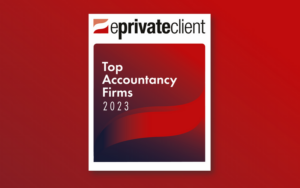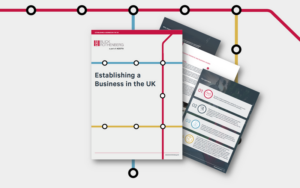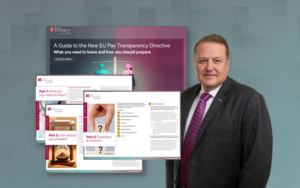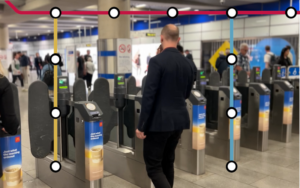The Government will use HMRC and its systems to investigate and issue unexplained wealth orders as the war in Ukraine continues
Unexplained wealth orders could be a huge asset as it seeks to put pressure on the Russian Government to address money laundering concerns in the UK
Unexplained wealth orders could be a huge asset in the UK’s financial armoury as it seeks to put pressure on the Russian Government to address money laundering concerns in the UK.
The Prime Minister announced last night at his press conference that he will use UWOs, and they could be a huge asset investigating who owns what at this critical time.
The Government will be asking HMRC to use its sophisticated computer systems to investigate individuals and companies who may be of interest.
What is generally not known is the huge intelligence system that HMRC has and can use when it is needed. The system can look at and interrogate, bank accounts, mortgages, travel movements, loans, money transfers etc and will immediately flag up issues where the figures don’t add up and there is unexplained wealth.
Unexplained Wealth Orders have been used in the past to track those who have been avoiding paying their taxes; now it looks as if they will be used to investigate suspicious money from Russia.
A UWO is a civil power and an investigation tool. It requires the respondent to provide information on certain matters: their lawful ownership of a property, and the means by which it was obtained. It is important to note that, as an investigation power, a UWO is not, by itself, a power to recover assets. It is an addition to several powers already available in the Proceeds of Crime Act 2002 (POCA) to investigate and recover the proceeds of crime and should therefore not be viewed in isolation.
The Government have several tools that it can use alongside UWOs to not only identify suspicious money but also seize it or freeze it. UWOs and the supporting interim freezing orders, were introduced by the Criminal Finances Act 2017 and came into effect on 31 January 2018. A UWO is an investigation order issued by the High Court on satisfaction of a number of criteria. The criteria that the investigatory body must demonstrate are:
- The respondent holds the asset
- The property is valued at more than £50,000
- There is a reasonable belief that the respondent owns the property
- There are reasonable grounds to believe that the respondent’s legitimate income would not be sufficient to acquire the property
- There are reasonable grounds to suspect the respondent has or has had links to those involved in serious crime (or is a politician or official from outside the European Economic Area (EEA), or is someone associated with them i.e. Politically Exposed Persons (PEPs). A UWO made in relation to a non-EEA PEP would not require suspicion of serious criminality.
UWO legislation allows enforcement agencies to investigate the source of assets based on the reasonable belief that they have been gained illegally. The subject of the order bears the burden of proving the relevant property is not criminal property. If the subject of the UWO fails to comply with it, then the investigatory body can apply to the court for a CRO to confiscate the relevant property.
Various agencies can use UWOs: the National Crime Agency, Her Majesty’s Revenue and Customs, the Financial Conduct Authority, the Serious Fraud Office or the Crown Prosecution Service.
If evidence is produced in response to a UWO, then a decision will be made on how to use that material. This may include referring the evidence to another body to consider criminal or civil action. Although it is possible to challenge a UWO it can be both a long and arduous process and the use of interim orders can make it more difficult. Assets can be frozen quickly; seizing the assets will take longer.
Would you like to know more?
If you would like to discuss the above or how it may affect you and your business, please get in touch with Fiona Fernie or your usual Blick Rothenberg contact using the form below or contact details on her profile.
For press enquiries, please contact David Barzilay.
Unexplained wealth orders could be a huge asset in the UK’s financial armoury as it seeks to put pressure on the Russian Government to address money laundering concerns in the UK.
The Prime Minister announced last night at his press conference that he will use UWOs, and they could be a huge asset investigating who owns what at this critical time.
The Government will be asking HMRC to use its sophisticated computer systems to investigate individuals and companies who may be of interest.
What is generally not known is the huge intelligence system that HMRC has and can use when it is needed. The system can look at and interrogate, bank accounts, mortgages, travel movements, loans, money transfers etc and will immediately flag up issues where the figures don’t add up and there is unexplained wealth.
Unexplained Wealth Orders have been used in the past to track those who have been avoiding paying their taxes; now it looks as if they will be used to investigate suspicious money from Russia.
A UWO is a civil power and an investigation tool. It requires the respondent to provide information on certain matters: their lawful ownership of a property, and the means by which it was obtained. It is important to note that, as an investigation power, a UWO is not, by itself, a power to recover assets. It is an addition to several powers already available in the Proceeds of Crime Act 2002 (POCA) to investigate and recover the proceeds of crime and should therefore not be viewed in isolation.
The Government have several tools that it can use alongside UWOs to not only identify suspicious money but also seize it or freeze it. UWOs and the supporting interim freezing orders, were introduced by the Criminal Finances Act 2017 and came into effect on 31 January 2018. A UWO is an investigation order issued by the High Court on satisfaction of a number of criteria. The criteria that the investigatory body must demonstrate are:
- The respondent holds the asset
- The property is valued at more than £50,000
- There is a reasonable belief that the respondent owns the property
- There are reasonable grounds to believe that the respondent’s legitimate income would not be sufficient to acquire the property
- There are reasonable grounds to suspect the respondent has or has had links to those involved in serious crime (or is a politician or official from outside the European Economic Area (EEA), or is someone associated with them i.e. Politically Exposed Persons (PEPs). A UWO made in relation to a non-EEA PEP would not require suspicion of serious criminality.
UWO legislation allows enforcement agencies to investigate the source of assets based on the reasonable belief that they have been gained illegally. The subject of the order bears the burden of proving the relevant property is not criminal property. If the subject of the UWO fails to comply with it, then the investigatory body can apply to the court for a CRO to confiscate the relevant property.
Various agencies can use UWOs: the National Crime Agency, Her Majesty’s Revenue and Customs, the Financial Conduct Authority, the Serious Fraud Office or the Crown Prosecution Service.
If evidence is produced in response to a UWO, then a decision will be made on how to use that material. This may include referring the evidence to another body to consider criminal or civil action. Although it is possible to challenge a UWO it can be both a long and arduous process and the use of interim orders can make it more difficult. Assets can be frozen quickly; seizing the assets will take longer.
Would you like to know more?
If you would like to discuss the above or how it may affect you and your business, please get in touch with Fiona Fernie or your usual Blick Rothenberg contact using the form below or contact details on her profile.
For press enquiries, please contact David Barzilay.
Contact Fiona

You may also be interested in

Self’s assessment: Budget changes to the HICBC

Non-domicile changes – Trust protection










